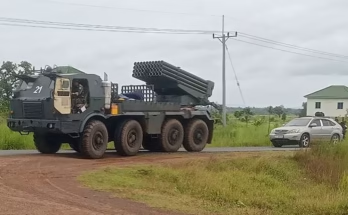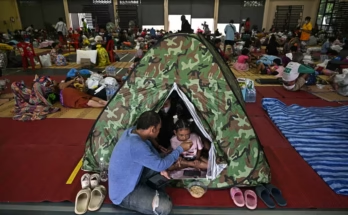The standoff between Thailand and Cambodia will be a critical test of ASEAN’s ability to overcome the very challenges it was founded to prevent, says Bryanna Entwistle of the Asia Society Policy Institute.
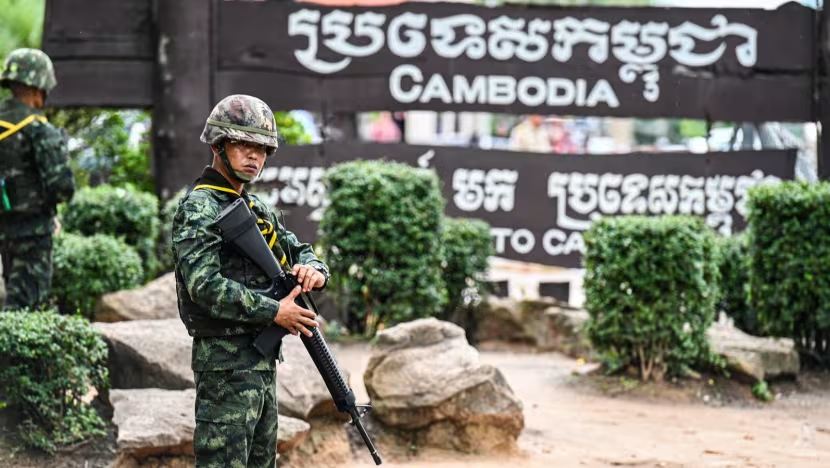
A Thai soldier stands at the Chong Chom border in Surin province, Thailand, a key crossing with Cambodia. (Photo: CNA/Jack Board)
NEW YORK: On May 28, a Cambodian soldier was shot in a brief exchange of gunfire between Cambodian and Thai forces along a disputed part of their 817km shared border. What initially appeared to be a bilateral military skirmish has since escalated into tit-for-tat cycle that threatens to destabilise ASEAN at a critical juncture.
After the clash, Phnom Penh and Bangkok beefed up their military presence in disputed areas along the border. Both sides took turns closing or reducing the operating hours of border checkpoints, and, by Monday (Jun 23), the Thai army had effectively shut all land border crossings with Cambodia.
Meanwhile, Phnom Penh banned Thai media, disconnected cross-border internet, and boycotted produce, fuel and gas imports from Thailand.
A leaked call between Thailand’s Prime Minister Paetongtarn Shinawatra and former Cambodian leader Hun Sen now threatens to unseat the former, who has already been heavily criticised for putting her family’s close ties with the Hun dynasty over national interests.
Bilateral efforts to resolve the dispute have dried up, and the stage is now set for a prolonged conflict between these two neighbours. How the border crisis unfolds will have serious repercussions not just for Thailand and Cambodia, but for the region as a whole. COLONIAL LEGACIES AND MODERN DISPUTES
Although Thailand and Cambodia generally enjoy friendly relations, unresolved colonial-era demarcations have been a longstanding source of tension, and both countries have historically disagreed on how to resolve such disputes.
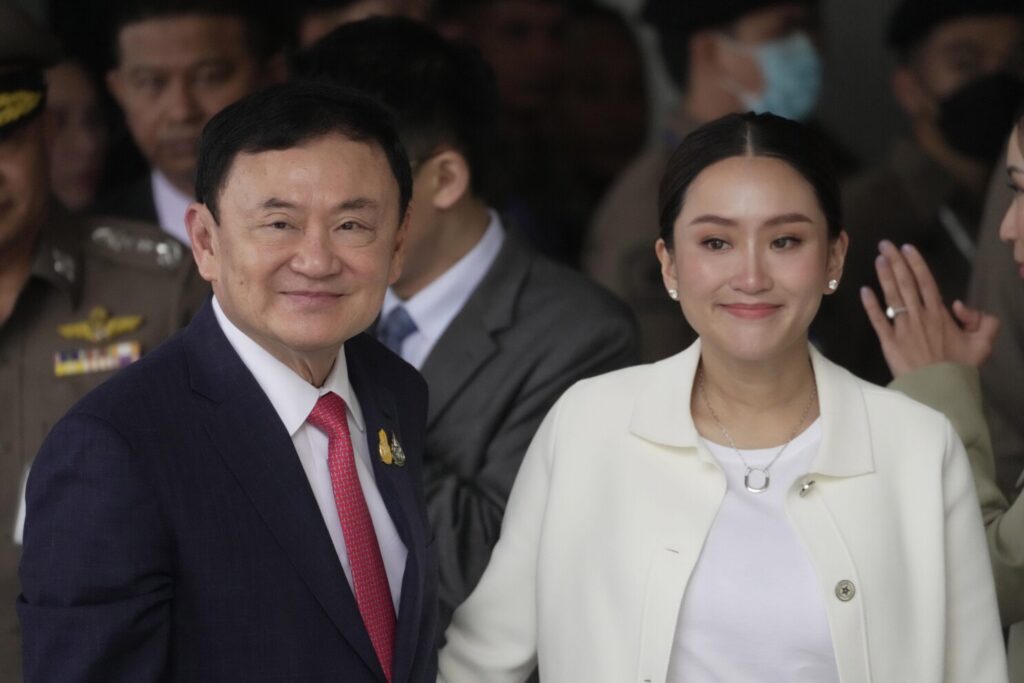
n 1962, following French withdrawal from Indochina, the International Court of Justice (ICJ) granted Cambodia authority over the highly contested 900-year-old Preah Vihear temple. While Bangkok begrudgingly accepted the ICJ ruling, the Thai government has continued to claim ownership over the land surrounding the temple.
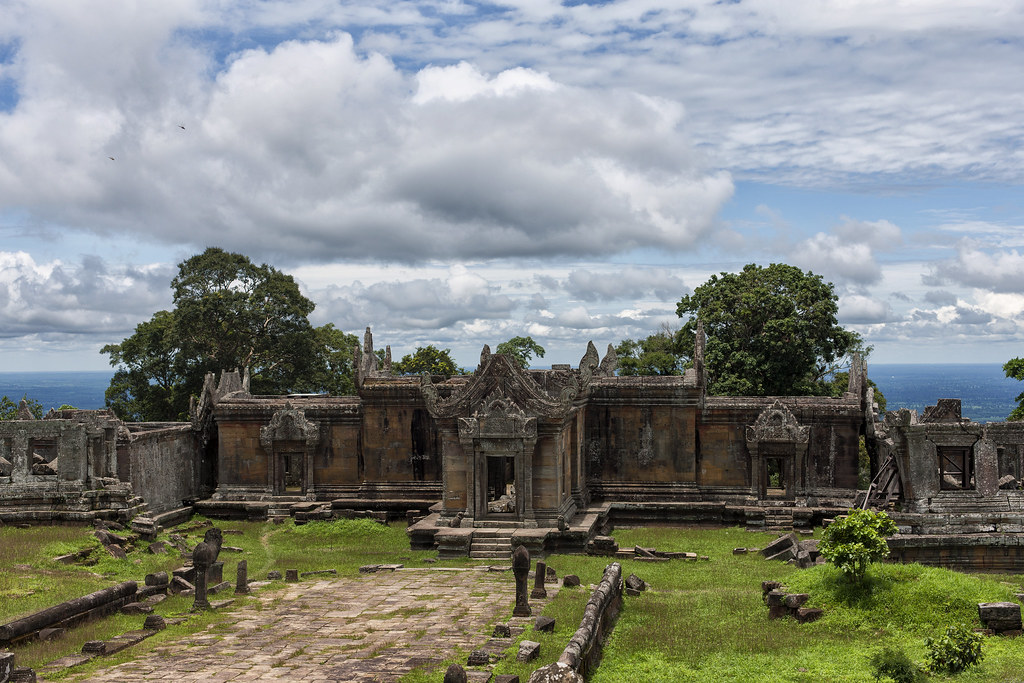
When Cambodia petitioned UNESCO to formally recognise Preah Vihear as a World Heritage Site in 2008, the ownership dispute resurfaced, resulting in a three-year-long series of military clashes that killed at least 28 and displaced 36,000 people in the areas surrounding the temple.

In 2013, after the fighting had stopped, Phnom Penh asked the ICJ to clarify the extent of Cambodian sovereignty on the surrounding land. The ICJ determined Cambodia had authority over the whole area, but Thailand rejected the court’s jurisdiction and disputed the ruling. The Thai army has since maintained a troop presence near Preah Vihear and several other contested temple complexes along the border.
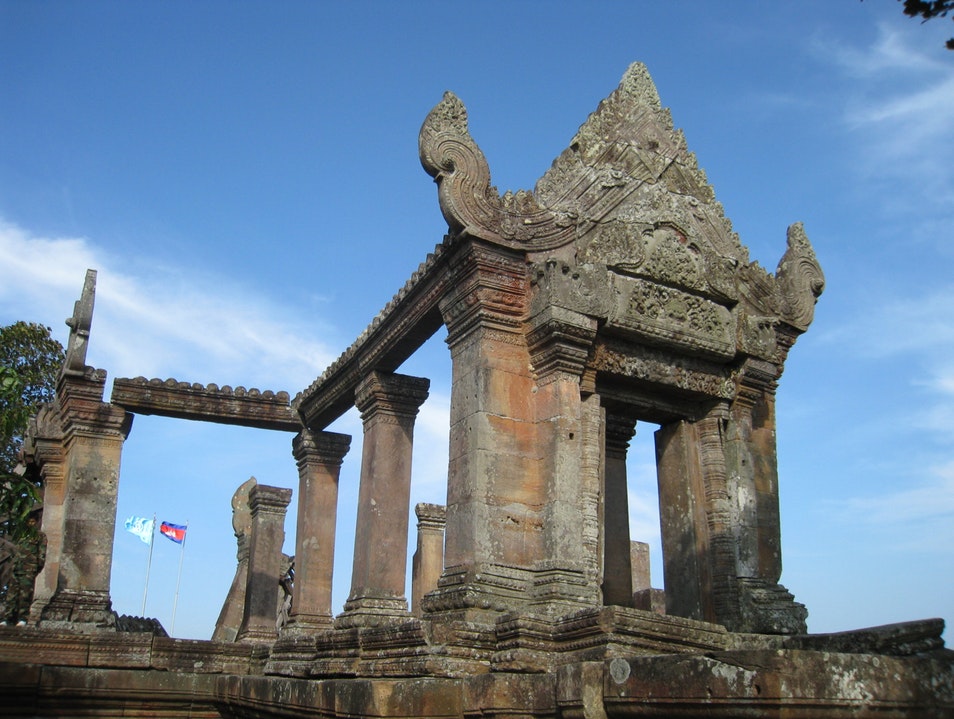
Following the recent escalation in border tensions, Cambodia has gone back to the ICJ, asking them to rule on jurisdiction over Ta Moan Thom, Ta Moan Tauch and Ta Krabei temples, as well as an area near to where the May 28 shootout occurred.
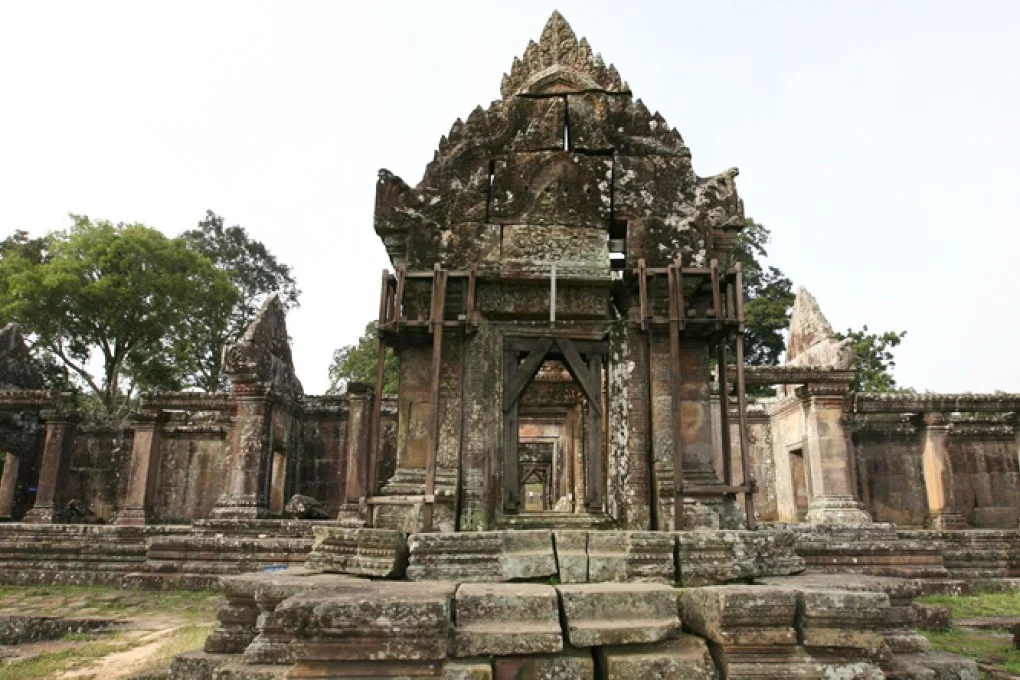
Bangkok has expressed their firm opposition to settling the issue through the ICJ and is unlikely to recognise any ruling on behalf of Cambodia.
Instead, Thailand insists on using bilateral mechanisms like the Thailand-Cambodia Joint Border Commission (JBC) to resolve the dispute. The JBC has struggled to make any meaningful progress since it was established in 2000 and likewise failed to de-escalate the conflict when it met 10 days ago.
NATIONALIST UNDERTONES
The nationalist undertones of the conflict likewise indicate that the border row won’t be easy to resolve.
In Thailand, the conservative opposition and military have capitalised on perceptions that Ms Paetongtarn, like her father before her, is too friendly with Cambodian strong-man Hun Sen and his son Hun Manet, the current prime minister.
On Jun 18, a 17-minute phone call between Ms Paetongtarn and Mr Hun Sen was leaked in which she called him “uncle” and appeared to criticise many of the Thai army’s actions at the border. In response, the Bhumjaithai Party announced that it would withdraw from the alliance with Ms Paetongtarn’s Pheu Thai party, leaving her with a slim and fracturing majority in parliament.
